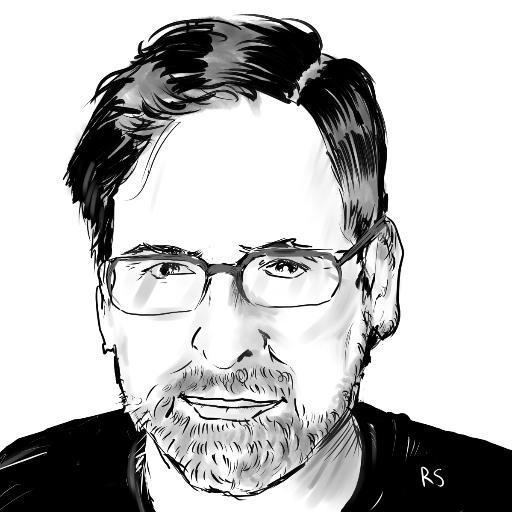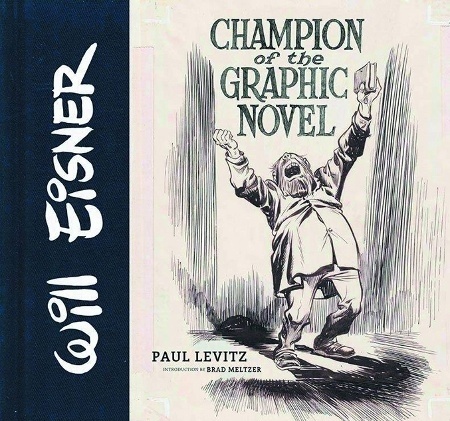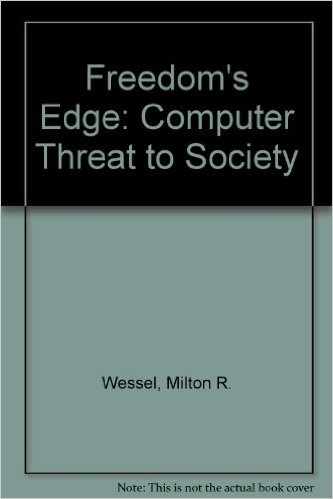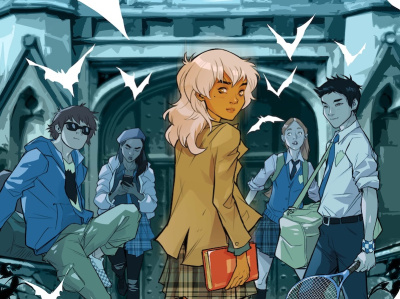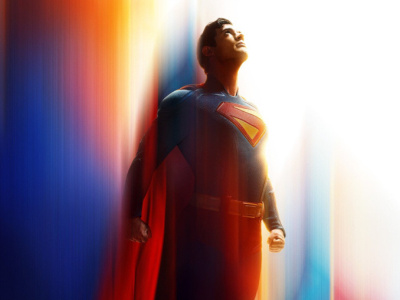Happy Will Eisner week! In honor of what would have been the comic grandmaster’s 99th birthday – and, here at ICv2, honoring his legacy as a champion of the business as well as the artform – I give you three Eisner-related items for your consideration.
Eisner Bio Featured at Columbia. First, if you are in New York and you see this post in time, consider heading up to Columbia University to see Paul Levitz and Jeremy Dauber in conversation (and if you’re not in New York, check this list for events near you). Levitz, former head of DC Comics and now an occasional columnist here at ICv2, wrote a fantastic biography of Eisner called Will Eisner: Champion of the Graphic Novel that came out in the fall from Abrams ComicArts. I had a chance to talk with him right before the book came out and our conversation centered mostly on Eisner’s persona as a creative entrepreneur, not just a storyteller.
At one point I asked Levitz if his view of Eisner changed once DC became his publisher in the early 2000s. He said that the contract negotiations allowed him to see clearly what really mattered to Eisner, who was then in his 80s and concerned about his legacy. “He wanted long-term control to match his long-term aspirations,” said Levitz. He was “willing to take economic risks to achieve his desire for legitimacy.”
This quest for critical regard as a theme in Eisner’s life dates back to the earliest days of his career. He wanted it not just for his own work, but for the medium of comics as a whole. Levitz documents that Eisner seized on the term “graphic novel,” which had already been in use in some fan circles by the early 1970s, to sell the concept of “comic books for grownups” to prestigious New York publishers. It was, in a sense, a triumph of branding, in that a clever coined term helped to change perceptions – even though it later became a confused and contentious concept.
Anyway, the book is the product of meticulous scholarship and sheds light on some of the lesser-known periods in Eisner’s career. It’s also lavishly illustrated with artwork from every phase of Eisner’s life, from cartoons he did for his high school newspaper to pencil roughs from his groundbreaking graphic novels. “The work is fading from view as we speak,” said Levitz, “but Eisner’s legacy is more important than ever.”
The Most Obscure Eisner? As exhaustive as Levitz’s biography is, I discovered it is still missing at least one totally oddball item. In 1975, shortly after Eisner began his re-emergence into comics but before he was working in earnest on A Contract with God, he found time to do some spot illustrations for a book called Freedom’s Edge, by an attorney named Milton Wessel, who was apparently a family friend.
The art in the book is emphatically nothing special. In fact, it is more reminiscent of the sketchy work of former Eisner protégé Jules Feiffer than anything we’d recognize from the man who drew The Spirit. But what’s interesting about this title is the subject matter.
Wessel was concerned about the growth of the computer industry and its implications on privacy. He envisioned a world where computers would be connected to one another, perhaps even by wireless networks, and reduced to the size of powerful mobile devices capable of displaying video, audio and other media. He believed that this would inevitably lead to the collection of vast amounts of data on the part of government and corporations – data that could be used identify patterns in our lives, relationships and consumption habits that would eventually erode our privacy and individual autonomy. He believed that the convenience afforded by remote access to information and perhaps even the sale of products and services over computers would prove seductive enough that people might willingly make this exchange, not realizing the implications until it was too late.
“For every obvious benefit the computer gives us, there is an overlooked and inadequately understood danger lurking just beneath the surface,” he wrote. In 19-freakin’-75! Talk about a prophet without honor.
And, oh yeah, Will Eisner did the art. Hat tip to Eisner fan extraordinaire Keif Fromm for bringing this obscure item to my attention.
Eisner Awards – a Modest Suggestion. Finally, voting is now taking place for the 2016 Will Eisner Awards Hall of Fame. This years’ inductees will be announced, as usual, at the Eisner Awards ceremony at San Diego Comic-Con. Judges selected Finnish cartoonist Tove Jansson, who gave us the Moomin trolls, and journeyman artist Carl Burgos, best known for creating the Golden Age Human Torch. Voters are being asked to select from a slate including Lynda Barry, Kim Deitch, Rube Goldberg, Edward Gorey, Bill Griffith, Matt Groening, Jack Kamen, Francoise Mouly, George Perez, Antonio Prohias, P. Craig Russell, Rumiko Takahashi, Jaques Tardi and Herb Trimpe.
There are some good names on that list to be sure: some real legends. Also some people who did one good thing, or who are nice enough folks, or stuck around long enough doing reliable professional work and, well, it’s about time they get recognized. After all, in nearly 30 years of bestowing awards, the most obvious candidates have already been inducted.
But there is one province in the comics world where the Eisner HOF has yet to shine its light, and that’s the Philippines. In the late 1960s and early 70s, the Asian nation furnished a steady stream of incredibly talented professionals. Nestor Redondo, Alfredo Alcala and Alex Nino, for example, were consummate stylists who could not only draw circles around most of their Bronze Age peers, but also had illustrious and near-legendary careers behind them in their own country. Tony DeZuniga, who died in 2012, was among other things co-creator of Jonah Hex. Unfortunately, DC had most of these folks working on secondary titles like war comics and mystery anthologies, so they didn’t get the fan exposure of someone like Herb Trimpe or EC mainstay Jack Kamen.
As the Eisners cast about for HOF-worthy talent, this is one rich tradition that offers a wealth of credible candidates for 2017 and beyond.
The opinions expressed in this column are solely those of the writer, and do not necessarily reflect the views of the editorial staff of ICv2.com.
--Rob Salkowitz (@robsalk) is the author of Comic-Con and the Business of Pop Culture.
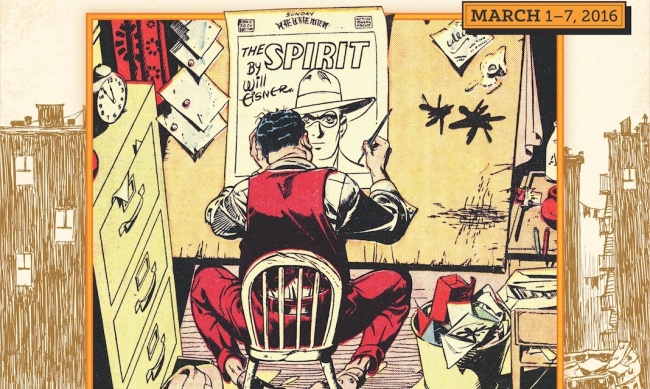
Column by Rob Salkowitz
Posted by Rob Salkowitz on March 7, 2016 @ 4:55 pm CT
MORE COMICS
Six-Issue Prequel to 'Gotham Academy'
July 15, 2025
The six-issue series is set before the events of the original Gotham Academy.
For Book Channel
July 15, 2025
Dynamite Entertainment has signed with Simon & Schuster for book channel distribution, the companies announced.
MORE COLUMNS
Column by Rob Salkowitz
July 14, 2025
Superman isn't a character who needs a general introduction to the broader public; he just needs an existing global fanbase to take a fresh look.
Column by Scott Thorne
July 14, 2025
This week, columnist Scott Thorne discusses Green Ronin Publishing's GoFundMe to fund its legal fight against Diamond Comic Distributors, and the soft preorders for the latest Horus Heresy box.



